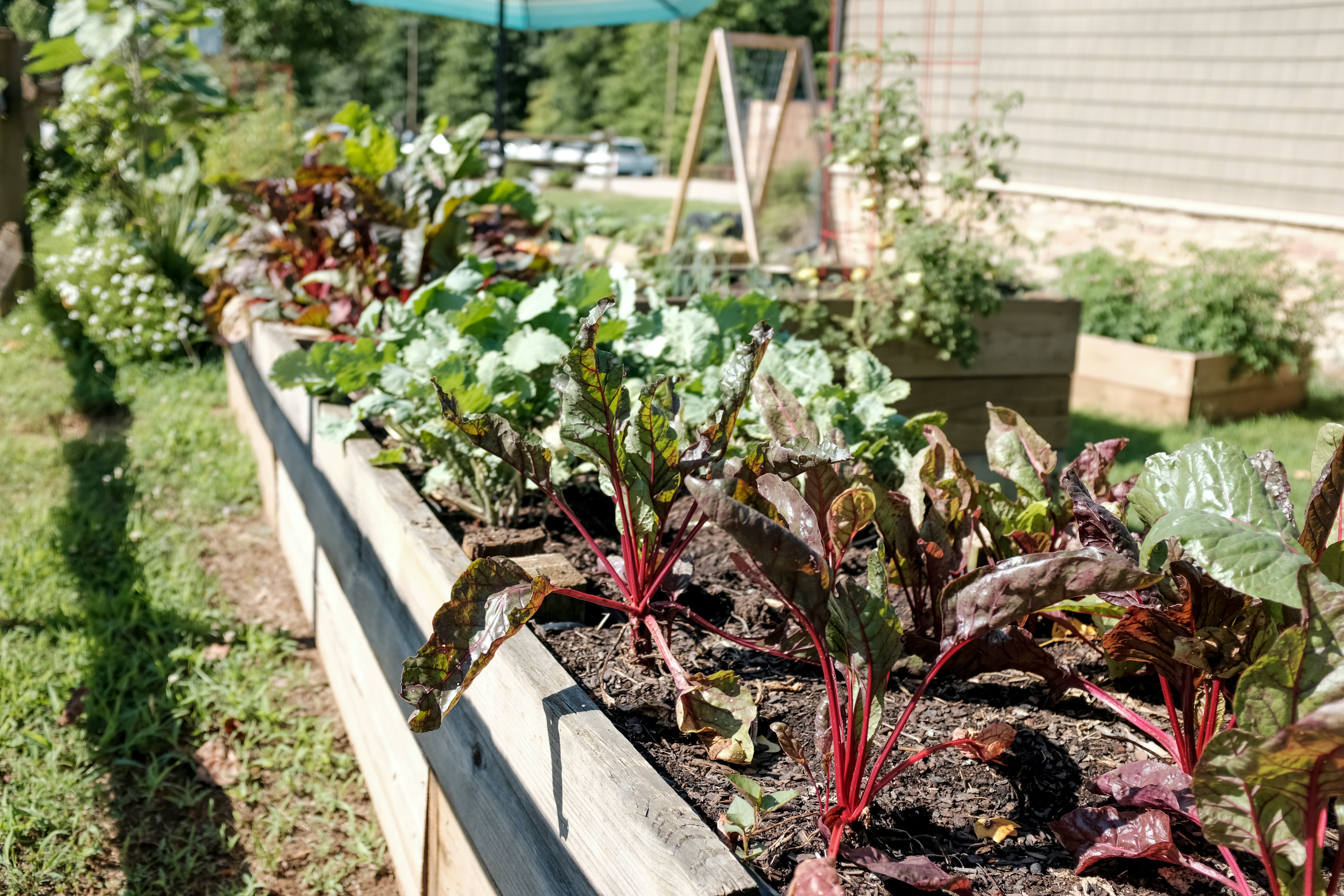10 Beginners Tips: Setting up a kitchen garden

- Feb 04 2022
- by GCI Desk
Whether we call it a fad or returning to our roots, growing your own food has caught the imagination of many people these days. High nutritional value and no use of harmful cancer causing fertilizers are some of the reasons why people have turned towards organic farming or kitchen gardening. The trend also became more popular due to the long lockdown witnessed last year. Whether we live in a small apartment or an independent house with garden, we all want to try it out. After all watching your own produce gives a different level of happiness to many.
So the big question is how you can set up a kitchen garden, if you have no one to guide you or if you are totally new to it. Here are 10 tips that you can keep in mind while setting up a kitchen garden for yourself.
1) Select an appropriate place: An ideal place for starting a kitchen garden is the one where there is availability of sunlight as well as shade. Different herbs need different conditions. If your balcony receives less sunlight considers choosing plants which require partial or very light sunlight such as radishes, beets,turnips, and carrots. Broccoli and cauliflower also do well in light shade. You can also consider planting leafy vegetables like arugula, radicchio, kale spinach, mustard greens and chard. If you have lesser space just know that kitchen gardens can be set up on window sills, vertical walls, or balconies.
2) Start with something simple: Start withherbs or plants whose seeds are readily available in your own kitchen and which do not require a lot of maintenance. This keeps the beginners motivated and also helps in understanding the basics well. Consider starting with mint, basil, parsley, lettuces, spinach, tomatoes, peppers, eggplants, beans, cucumbers, radishes, Asian greens. If fruits are on your mind you can easily get grafted samplings.
3) Less space: Most apartments these days have very limited space, but this should not dull your enthusiasm as the good news is that you can also grow your kitchen garden vertically! You can consider installing wall planters, railing planters, and even hanging baskets to support crops that grow vertically.Space-hungry vining vegetation such as tomatoes, peas, melons, gourds, squashes,etc., can be grown straight up with the help of stakes, fences, pole beans, trellises,or cages.
4) Try alternate planting: Plan your plantations in rotations, this will increase your productivity and also give you variety.
5) Consider Inter planting: There are many advantages of Interplanting. Compatible plants save space, repels regular pests, and even makes your venture more productive in general. Some of the plants that you can interplant are – 1)Corns, beans and squash 2) Tomatoes, basil and Marigold 3) Basil, Chives and pepper. 4) Eggplants, Beans, Thyme, and Spinach
6) Making compost at home:You can use raw kitchen waste to make compost, in order to add fertility to the soil. There are various ways to compost organic matter. You can simply use covered earthen pots to discard the organic waste. Try to avoid cooked waste, onion peels or citrus peels in large quantities and sprinkle each layer with red soil over it. Keep repeating the process till your pot is full. A 20-litre pot could last for approximately a month, for a family of four. Keep the full pot aside. The material in the pot would be ready for use in the form of compost after two months.
7) Do not over water the plants:This is the most common mistakes the beginners make while starting the kitchen garden as they feel it will give better results. Check if the soil is dry and just wet the soil with water that keeps it damp
8) Buying garden tools: Begin with simple tools like spade and garden fork for digging the soil when planting the greens.
9) Choosing right size of containers:Always consider the size of the plant when it is fully grown and buy the container accordingly
10) Time of watering –Water the plants in the morning or evening, also do not let the water evaporate during the heat of the day. Keep the soil moist but avoid excess watering.
So next time you are thinking of starting a kitchen garden and don’t know where to start just yet, keep these simple tips in mind and just start it!
Green Clean India (www.greencleanindia.com) is an initiative to exhibit the collective power of Housing Societies, by providing a common platform across the country to interact and exchange thoughts that best suit community living. For details on how we can help you make lifestyle changes, do contact us at +919717938018 or write to us at wecare@greencleanindia.com
LEAVE COMMENT HERE
COMMENTS (1)
LATEST ARTICLES
-

-
 All About Smoking in Housing Socities
All About Smoking in Housing Socities- Feb 04 2022
-

MOST POPULAR ARTICLES
-
 Fighting the pest is all About timely actions
Fighting the pest is all About timely actions- Feb 04 2022
-
 Online society repository era is a reality now
Online society repository era is a reality now- Feb 04 2022
-
 Apartment safety is about Intelligent security
Apartment safety is about Intelligent security- Feb 04 2022
Supriya Bajaj
Feb 04 2022nice article.